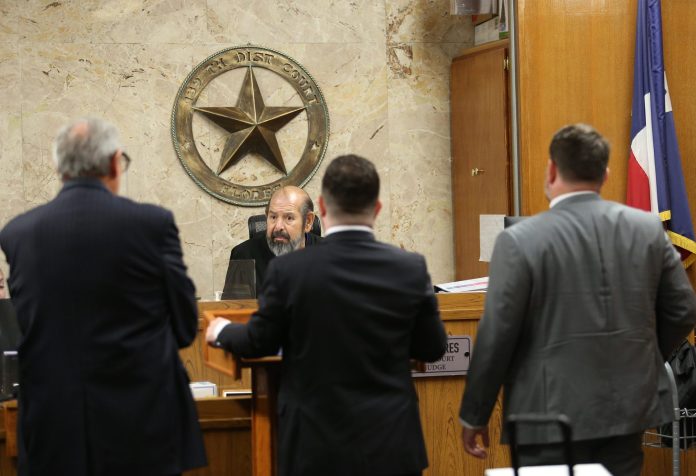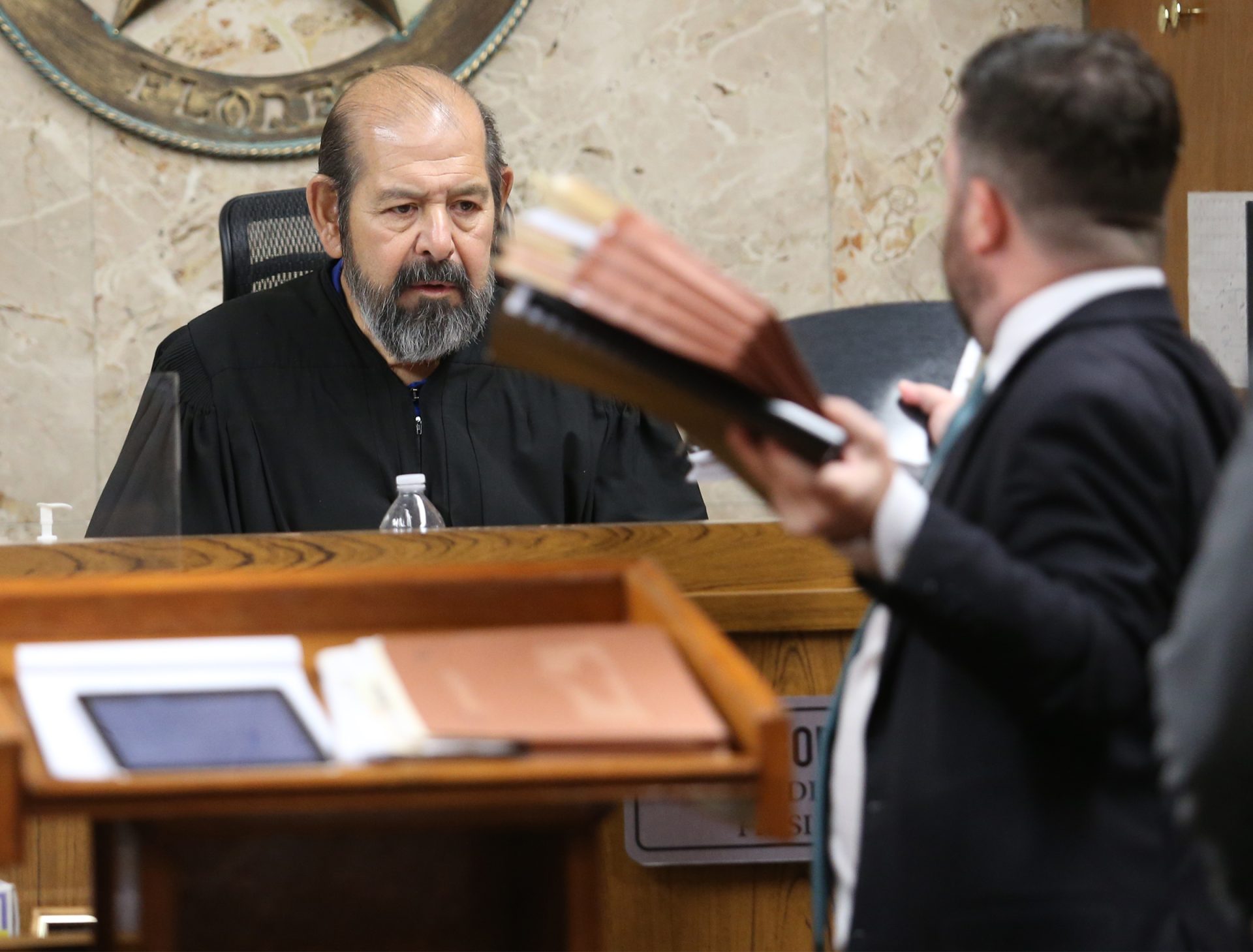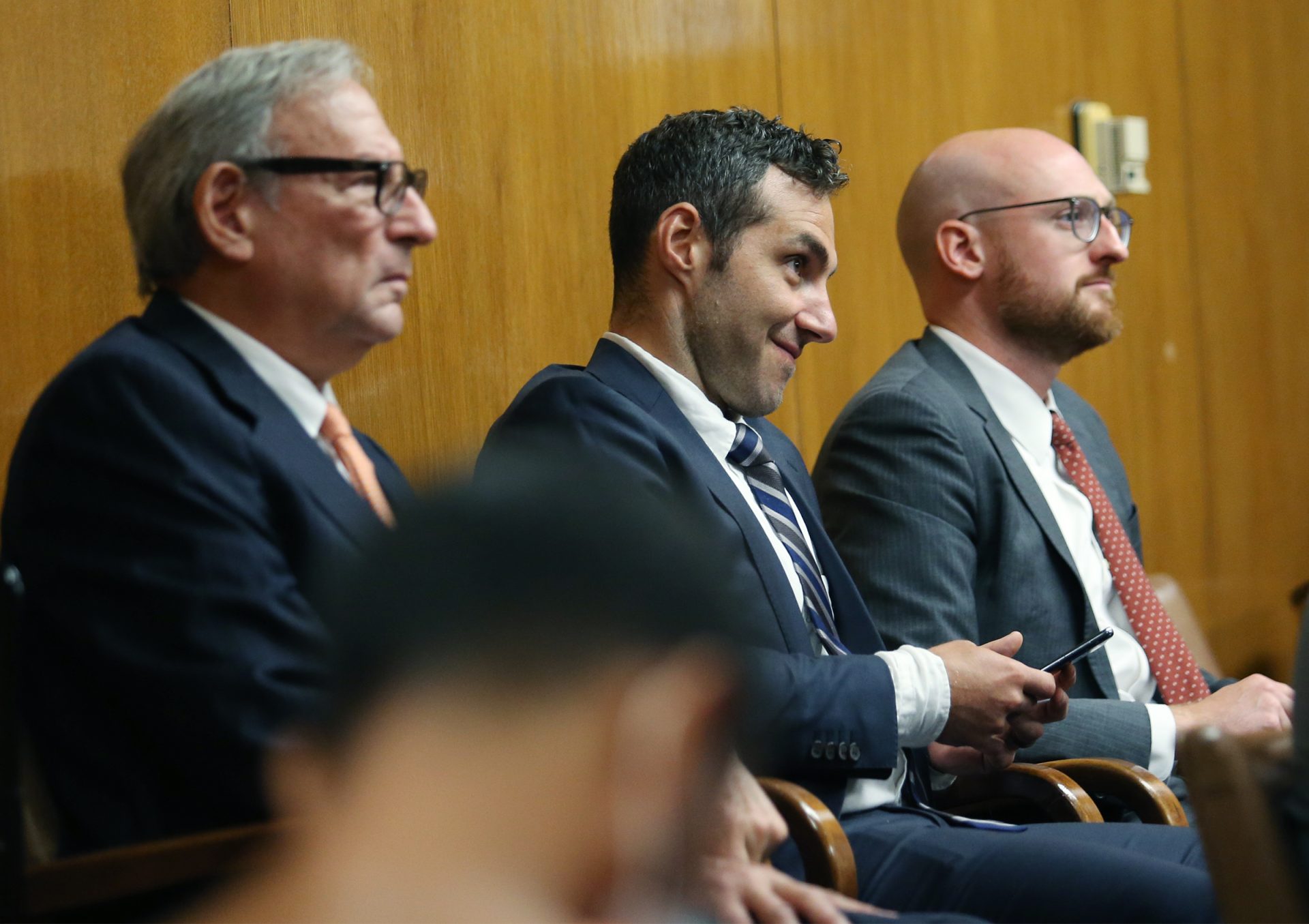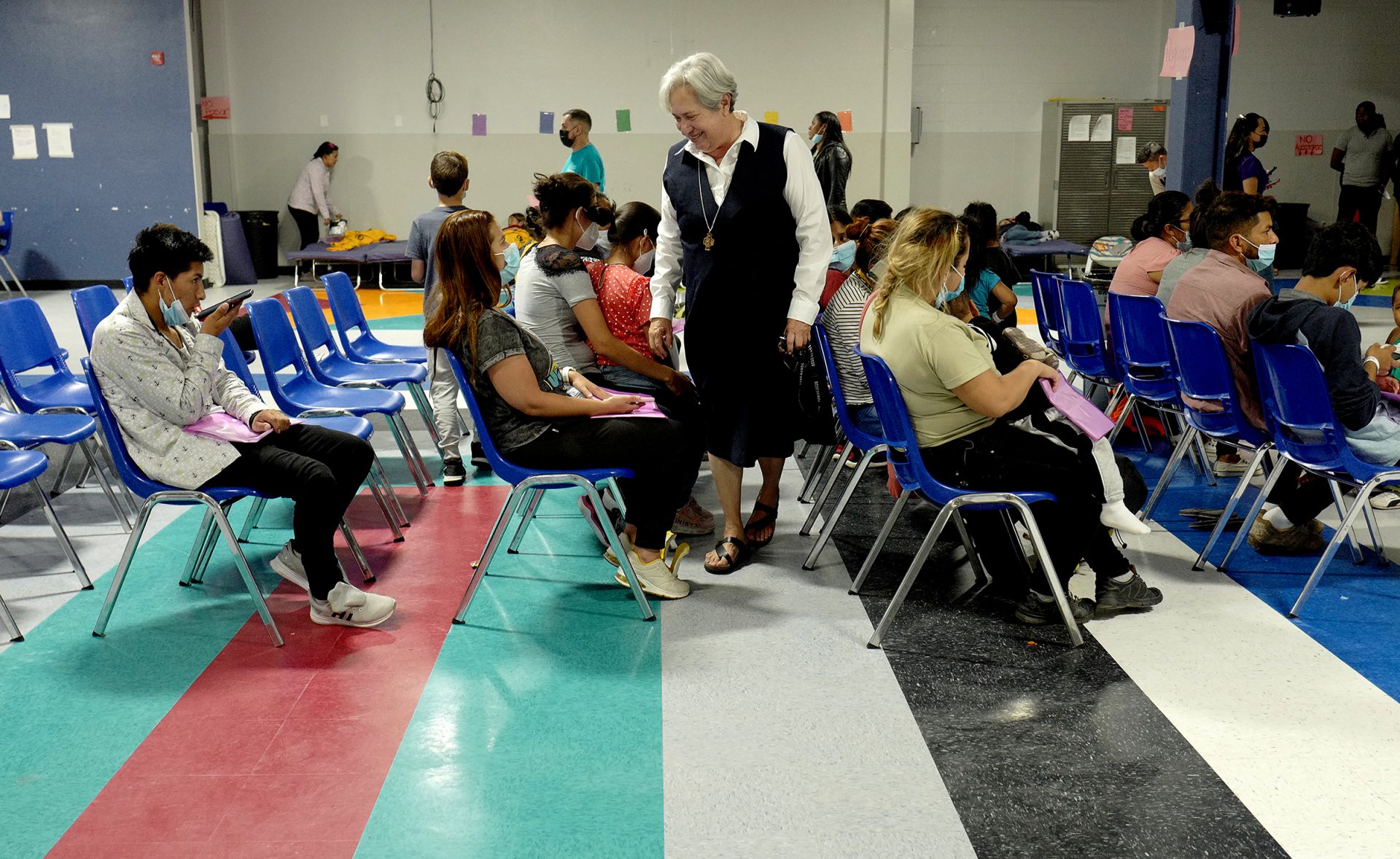
|
Only have a minute? Listen instead
Getting your Trinity Audio player ready...
|
The Texas Attorney General’s Office is continuing its efforts to depose Sister Norma Pimentel, executive director of Catholic Charities of the Rio Grande Valley, in its quest to uncover alleged criminal wrongdoing by the religious nonprofit.
The latest court action follows a months-long effort by the state to investigate several religious nonprofits and nongovernmental organizations that provide humanitarian aid and temporary shelter to asylum seekers who have crossed the U.S.–Mexico border.
In July, a state district judge stymied those efforts when he denied the AG’s request to take a sworn deposition from Pimentel, the Catholic nun who oversees operations at the nonprofit’s migrant respite center in downtown McAllen.
But just one month later, the state has gone for another bite at the apple — this time, by filing a petition for a writ of mandamus that would overrule state District Judge J.R. “Bobby” Flores’ July 24 ruling.
On Aug. 23, the state filed the 20-page petition, which argues that the judge overstepped his judicial authority in denying the deposition in violation of the state’s constitutional authority to do so.
“The trial court clearly abused its discretion in denying OAG’s (Office of the Attorney General) Rule 202 Petition because when OAG is investigating a corporation authorized to conduct business in Texas, it is always entitled to conduct presuit depositions,” the petition reads, in part.
But the petition goes further than that.
The document also sheds new light on the allegations the attorney general’s office is pursuing — allegations of criminal wrongdoing that could prompt the state to shut the nonprofit down.
“The evidence showed that OAG sought to depose a representative of CCRGV as part of an investigation into whether CCRGV’s provision of services to aliens is unlawful in a way that would cause forfeiture of CCRGV’s corporate charter,” the petition states.
FROM INQUIRIES TO ALLEGATIONS
The AG’s investigation began earlier this spring, when the AG’s office sent Catholic Charities a letter demanding that it designate a representative who could answer questions from state attorneys in April.
The state cited its authority under the Texas Business Organizations Code — a statute that governs corporations and nonprofits who have a license to operate within the state — to investigate how the nonprofit operates.
Initially, the correspondence from the state sought to allay the nonprofit’s concerns about the motives behind the investigation.
“At this time, the Attorney General’s office is not accusing Catholic Charities of the Rio Grande Valley … of any substantive legal wrongdoing,” Levi Fuller, an assistant attorney general, wrote in an April 5 letter addressed to David C. Garza, the Brownsville attorney representing Catholic Charities.
But by the time the two sides met in court in July, the tone had decidedly shifted, with the state’s attorney’s making thinly veiled accusations that Catholic Charities is engaging in human smuggling.
“We’re looking into, specifically, several criminal … possible criminal violations — smuggling persons and bringing in and harboring certain aliens,” Assistant Attorney General Matthew Kennedy said at the July hearing.

In its petition for a writ of mandamus, the state’s allegations go even further, walking the line between inflammatory and conciliatory.
In almost the same breath, the state lobs criminal accusations, but then states those allegations are not quite so sure-fire.
“(Catholic Charities) engages in conduct that at least raises a question whether it is systemically violating these provisions. For example, CCRGV operates a ‘Respite Center’ that appears to indiscriminately provide shelter to aliens who have just recently crossed the border,” the petition states.
The “provisions” the state refers to are crimes outlined in the Texas Penal Code regarding transporting migrants “with the intent to conceal the individual from a peace officer,” and encouraging migrants to remain in the U.S. without authorization “by concealing, harboring, or shielding that person from detection.”
But just as soon as it implies the nonprofit is participating in such unlawful activity, the state says it can’t be sure of that until it has an opportunity to depose someone.
“To be clear, OAG has not made a determination that CCRGV is violating the law — that is what the deposition is necessary to determine,” the petition reads, with emphasis on the word “is.”
The petition makes a lot of “if/then” statements regarding Catholic Charities’ alleged conduct.
“If” the nonprofit is “transporting aliens who have not been processed by Border Patrol,” or “if” CCRGV engages in conduct to conceal aliens from law enforcement, then the AG will know for sure if it needs to sue Catholic Charities, or potentially yank its corporate charter, which would effectively shut the organization down.
But the only way for the state to determine its next course of action is by deposing Catholic Charities, whom it accuses of being opaque, “non-responsive and evasive.”
“And given the way CCRGV operates, a deposition is the most practical way to shed light on the topics OAG is investigating, like CCRGV’s practices for admitting aliens into its facility,” the petition states.

‘FISHING’ FOR EVIDENCE
For the attorneys representing Catholic Charities, however, the AG’s pointed allegations and subsequent attempts at launching an investigation amount to nothing more than a “fishing expedition” based entirely on years-old specious allegations made by Texas Gov. Greg Abbott and a single U.S. congressman.
It was a December 2022 letter from Abbott to Texas Attorney General Ken Paxton that ultimately sparked the probes into not only Catholic Charities, but also El Paso’s Annunciation House and Cameron County’s Team Brownsville.
“There have been recent reports that non-governmental organizations (NGOs) may have assisted with illegal border crossings near El Paso,” the governor’s letter reads.
“We further understand NGOs may be engaged in unlawfully orchestrating other border crossings through activities on both sides of the border, including sectors other than El Paso,” it further states.
U.S. Rep. Lance Gooden, a Republican representing a portion of East Texas, echoed those concerns in a September 2023 letter addressed to Homeland Secretary Alejandro Mayorkas.
In the letter, Gooden claims that NGOs are “complicit” in trafficking more than 8 million migrants.
However, during July’s court hearing, attorneys representing Catholic Charities argued that Abbott’s and Gooden’s assertions are far from credible.

They pointed to documentation the nonprofit provided to the AG in the months leading up to the July hearing.
Those documents show Catholic Charities receives migrants directly from the custody of federal law enforcement officers who have determined the migrants have the legal authority to remain in the country as they await the outcome of their asylum cases.
Furthermore, the nonprofit sends some of the migrants on their way aboard the very buses that Abbott conscripted to provide transportation to so-called “sanctuary cities” such as New York City and Chicago.
But in its petition for mandamus, the state argues that the truth of their allegations is irrelevant when it comes to their right to investigate Catholic Charities.
“That argument misses the point. Such a ‘merits-based defense to the potential lawsuit is not a valid objection to a petition seeking presuit depositions,’” the petition states.
UNCERTAIN VENUE
A week after the attorney general’s office filed its mandamus petition, the Supreme Court of Texas ordered the case transferred from the 13th Court of Appeals in Edinburg to a newly created statewide appellate court.
State lawmakers created that court, the Austin-based 15th Court of Appeals, during the 2023 session. Its mandate is to preside over business litigation and cases involving state agencies.
In June, Gov. Abbott appointed three conservative justices to serve on the court, which continues its efforts to get off the ground.
But already, Catholic Charities is fighting back against the venue change.
On Sept. 5, attorneys for the nonprofit filed motions in both the 13th and 15th Courts of Appeals seeking to transfer the state’s mandamus petition back to Edinburg.



